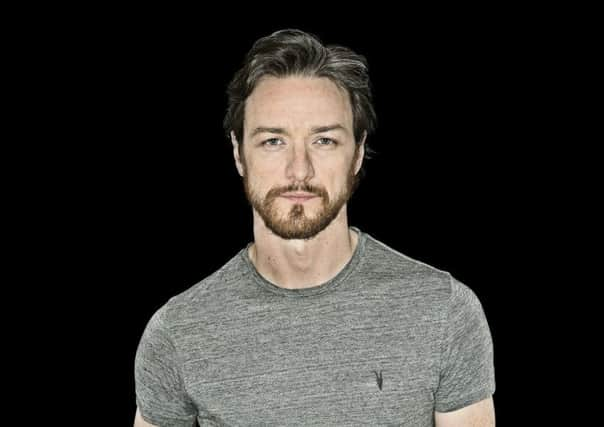Joyce McMillan: Working class actors need support


He’s a star presence in the rising generation of young British actors, with screen credits that range from the 2006 film Last King of Scotland to the long-running television series Shameless; but back in April, James McAvoy was thinking far beyond his own glittering career, when he came home to his old drama school, the Royal Conservatoire of Scotland, to announce a new awards scheme, the James McAvoy Drama Scholarships, designed to help young Scots under 25 gain access to drama tuition at the RCS.
The awards – funded by McAvoy to the tune of £125,000 over ten years – are aimed at young people for whom the cost of tuition would otherwise be a barrier; and they are focused on the RCS’s short courses and Junior Conservatoire classes, which, across all art-forms, involve over 3,000 students each year. “One of our Saturday drama classes typically costs about £200 a term, for example,” says RCS Deputy Principal Maggie Kinloch. “So you can see how these scholarships, offered to students who otherwise just couldn’t afford those fees, may well make a huge difference.” McAvoy, launching the awards, talked of his own childhood in Drumchapel. “I am where I am today because of an exceptional schoolteacher, who went above and beyond the call of duty. She brought director and actor David Hayman into the school to talk to her students, and that was me hooked; and now I want the same opportunities for other young people out there, who may not have even considered going to college.”
Advertisement
Hide AdBoth McAvoy and Maggie Kinloch are also aware that the launch of the scholarships comes at a moment when theatre and screen stars across the UK are increasingly questioning whether students from less well-off backgrounds any longer have meaningful access to an acting career. Actors including David Morrissey, Julie Walters, Brian Cox and Dame Judi Dench have expressed concern about a generation of British acting dominated by Eton and Harrow old boys like Eddie Redmayne and Benedict Cumberbatch; and key industry figures including EastEnders casting director Julia Crampsie have suggested that the acting profession is becoming “too middle class”.
The difficulty, though, is that while drama training is key to providing opportunities for people from all backgrounds, it’s not the only factor in determining the culture of the industry into which students graduate. Kinloch points out that in Scotland, institutions like the RCS easily meet the Scottish Government’s targets for recruiting students from poorer areas. And even in England, where the issue of university fees looms larger, institutions like RADA insist that recruitment of students from poorer backgrounds is not the problem, and that more than a third of their students come from homes with an annual income of less than £25,000.
Yet some drama schools complain that they simply have to train working-class students to sound and seem middle class, since most roles now require that; society itself has changed, after all, with a huge and growing emphasis on values of “aspiration”, and “identifying upward”. And Kinloch suggests that the deeper problem perhaps lies in who is doing the writing, the commissioning and the casting, rather than in the acting profession itself.
“What’s clear, though,” she adds, “is that this is an area where perception very quickly becomes reality; if people from poorer backgrounds begin to perceive that a career in drama is not for them, than that immediately affects their decisions. And places of training like the RCS are absolutely vital in challenging those perceptions – which is one more reason why we’re delighted to have James McAvoy supporting these scholarships. Because finally, it’s not just about the money. It’s about the fact that like many other Scottish actors, James is a great role model; and his whole career says, ‘Look, no matter where you come from, you can do this; so don’t let anything stop you, least of all your own fear of taking the first step.’”